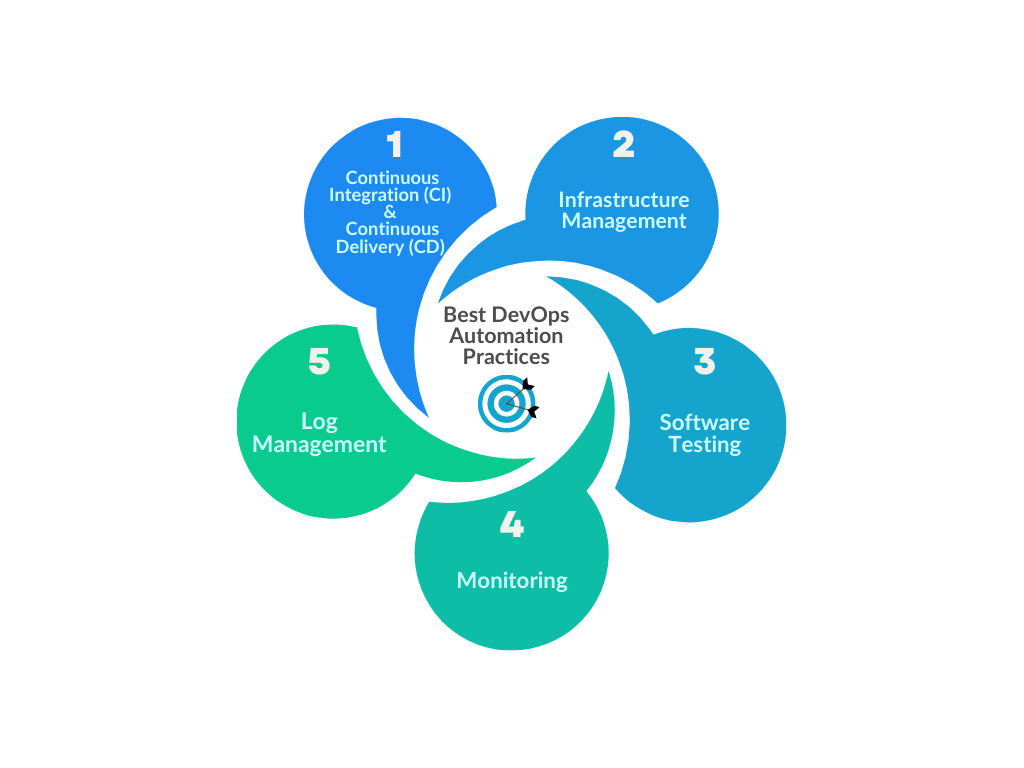Best Practices for DevOps Automation in Your Company
Best Practices for DevOps Automation in Your Company
Due to the continuous growth of software in the technology sector, development teams are constantly under pressure to satisfy rising customer expectations for business applications. The following are common expectations:
- Performance enhancement
- Adding new features
- Ensured uptime and availability
The traditional software development process has evolved with the rise of cloud-based applications. Rather than simply generating software for a specific requirement specified by a customer, the current approach is to think of software development as a continuous service. Product development has shifted from a monolithic to an agile structure, in which developers continuously enhance the software to meet changing client needs.
DevOps and Automation:
Automation refers to incorporating specific duties into computerized applications for convenient, rapid, and cost-effective use. DevOps automation is critical for optimizing DevOps operations within the agile software development life cycle.
DevOps methods that are automated have many advantages. They make it easier to plan. There are also fewer dangers because there are fewer human error chances because fewer individuals are involved in the process.
Can automate DevOps in a variety of areas. Software delivery, infrastructure management, application performance monitoring, and maintenance are just a few examples.
Why do you need DevOps Automation?
Before we get into the benefits, let’s think about why you need DevOps automation in the first place. Automation is an essential aspect of the DevOps revolution because it allows businesses to increase efficiency, resilience, and reliability. It also eliminates delays, allowing more time to be spent on other vital objectives. Since the DevOps methodology in 2007, automation has significantly progressed and expanded into new domains, ranging from automating delivery, integration, and deployment to utilizing creative automation techniques to observability, reliability, and remediation.
The Benefits of DevOps Automation
The benefits of automation go beyond improving performance. There are a lot of advantages that depend on who you ask. Let’s take a look at the benefits of both engineering and business.
DevOps automation, from an engineering standpoint:
- assists development teams in becoming more efficient;
- reduces inter-team dependency
- helps engineers to automate infrastructure provisioning and configuration tasks;
- enhances transparency, resulting in increased productivity;
- allows for more mind space for creative and innovative thinking;
- improves product quality and frequency of release;
- Assists in receiving faster feedback.
DevOps automation, from a business standpoint:
- lowers the time it takes to deploy a feature;
- By automatically detecting and correcting faults, it improves dependability and availability.
- decreases the possibility of human error
- prevents the need for giant teams, freeing up funds for other purposes;
- lowers the number of times various development teams have to do the same thing;
- decreases the amount of time spent on non-essential tasks;
- provides simple but effective problem-solving methods;
- lowers IT costs while increasing business value
You can spend a lot of money on DevOps technologies in the hopes of saving time, money, and resources, yet nothing will happen. What causes this to happen? This is mainly due to misconceptions and falsehoods about DevOps, more practical cooperation, and communication across the business, not just new tools. However, to profit from DevOps automation effectively, the technique must be thoroughly understood and implemented.
Best DevOps Automation Practices

Continuous Integration (CI) and Continuous Delivery (CD)
When a developer checks in changes to the shared code repository, CI/CD automation usually involves automating the building and testing of code. CI tools will also generate metrics overtime on code quality and test coverage, estimate project risks, and aid release planning. Because faults are found as early as feasible, the goal is to avoid integration difficulties seeping into software projects. You can also create a deployment pipeline with fewer manual stages or even no human participation using these technologies.
Infrastructure Management
Because we spend most of our time maintaining the computers running our apps, infrastructure management is critical to automate.
Servers, clusters, virtual machines, storage devices, load balancers, and other components that keep everything working smoothly and efficiently are all targets for automation.
Software Testing
DevOps is putting a lot of emphasis on automated software testing. Although human software testing has its place, many, if not all, firms have automated software testing technologies in their development environments. User interactions, user interfaces, unit tests, and other aspects of the software are all part of the testing.
There are two types of testing tools: those that test the application’s behavior and those that try the application’s structure or code. Tools that check the design or code of an application are frequently included in the build process and run before each release. The goal is to catch problems before they reach the manufacturing stage.
Monitoring
Monitoring is critical to DevOps automation. It provides the tracking of application and infrastructure performance and stability throughout the software lifecycle and provides vital insights and data to troubleshoot. It gives engineers the knowledge they need to troubleshoot and patch problems.
Log Management
One of the prerequisites in DevOps is log management, which is the act of gathering, analyzing, and storing data. Its goal is to keep track of events that occur over time to monitor the performance of applications, infrastructure, and other services. A log management system aids in detecting errors, monitoring operations, and the measurement of performance measures.

While DevOps automation has tremendous advantages, it may also be a significant burden. With so many pricey automation technologies and DevOps providers, you’ll need to develop your method. Zen Networks can assist you in this situation. We are seasoned experts who are well-versed in cloud computing and DevOps. We also have years of experience and a long list of successful projects and satisfied customers.
Author






